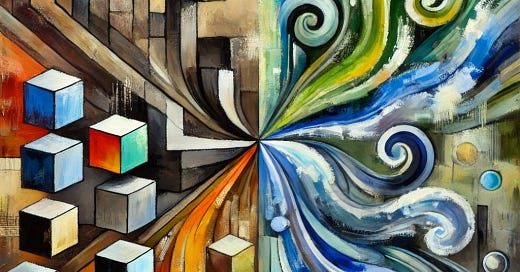Klassische Journalisten verlieren ihre Deutungshoheit an Creator
The way creators are being mocked and belittled by so-called "established" journalists and observers online is nothing short of disgraceful.
The entitlement, the arrogance, and the gatekeeping is appalling. While the viciousness of these attacks is upsetting, the backlash is not surprising.
This is the same kind of protectionist behavior that has been happening in the media world for decades, as many invested in institutional power structures lash out amidst their dwindling influence. (I wrote about this last year for WaPo and extensively in my book).
From the first blogger to receive White House press credentials in 2005, to fashion content creators being seated front row at Dolce & Gabbana in 2009, to this recent convention, creators have been infiltrating and upending traditional media structures for nearly 25 years.
Many in legacy media institutions perceive the rising influence of content creators as a direct threat to their long-standing dominance, and their concerns are justified.
The influence of content creators is part of a broader transformation in the media landscape that is dismantling the old guard, empowering millions who previously had no voice or influence in our political system, and creating vast new sectors of the economy—all while rendering many traditional institutions, whose business models were already crumbling, increasingly obsolete.
As I argue in my book, Extremely Online: The Untold Story of Fame, Influence, and Power on the Internet, which chronicles the rise of the content creator industry, this shift in our information and media ecosystem is one of the most significant and disruptive changes in modern capitalism.
Journalism is not a profession that requires a degree or some kind of official certification. It’s a practice—one that involves gathering information, questioning power, telling stories, and engaging with an audience.
Content creators often do all of these things with more authenticity and immediacy than traditional media.
Creators regularly uncover stories or angles that traditional media either ignores or fails to pursue. Many who have expertise in certain areas dig into topics with a level of detail and dedication that rivals any newsroom.
They provide real-time, on-the-ground coverage of events, unfiltered coverage that is invaluable, especially in an era where trust in mainstream media is at an all-time low. Just like traditional journalists, content creators also provide analysis and commentary on the news.
The difference is that creators are more likely to be transparent about their biases, and the good ones engage with their audiences in a way that fosters dialogue rather than dictating opinions from on high.
One of the defining features of content creation is audience engagement. And while many online have been bashing the DNC creators for "chasing likes", they fail to recognize that these influencers are building powerful communities around shared interests and values. This type of relationship is far more meaningful than the passive consumption of traditional news.
This is not to say that the new, creator-dominated landscape is not without significant downsides, and I have covered these downsides for years.
Most creators are forced to operate as one man media companies, doing work that would previously have been done by a dozen people, alone.
They don't always disclose conflicts of interest and some, driven by engagement metrics and algorithms, prioritize sensationalism over accuracy and depth.
A lack of editorial oversight and fact-checking can sometimes result in content that is biased, incomplete, or even misleading.
Creators who practice journalism must also resist the temptation to compromise their integrity for access, and remain committed to truth and transparency.
But to act like these issues aren't already rampant in the legacy media is disingenuous.
Schreibt Taylor Lorenz, die, wie ich, ein traditionelles Medienhaus verlassen hat um auf eigene Faust Journalismus zu machen. Hier der ganze Text:





